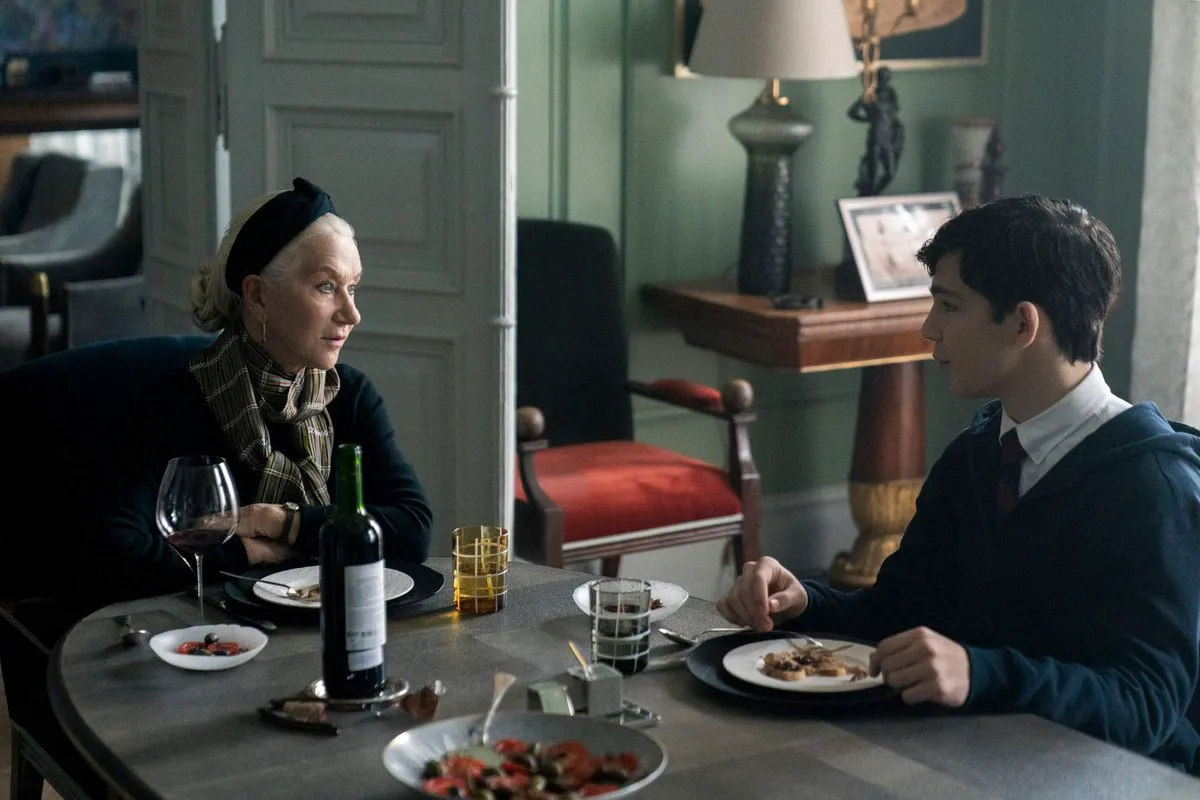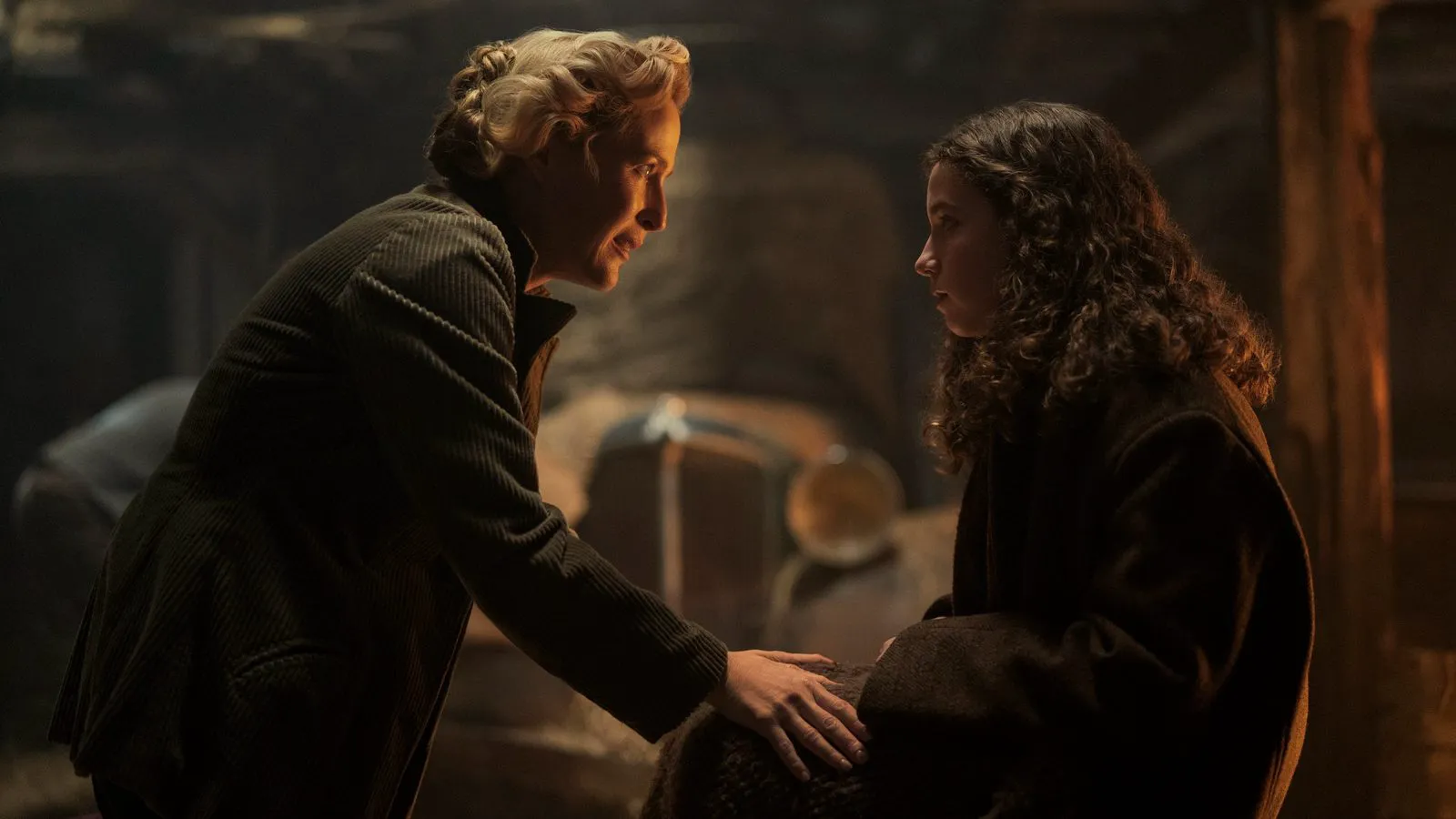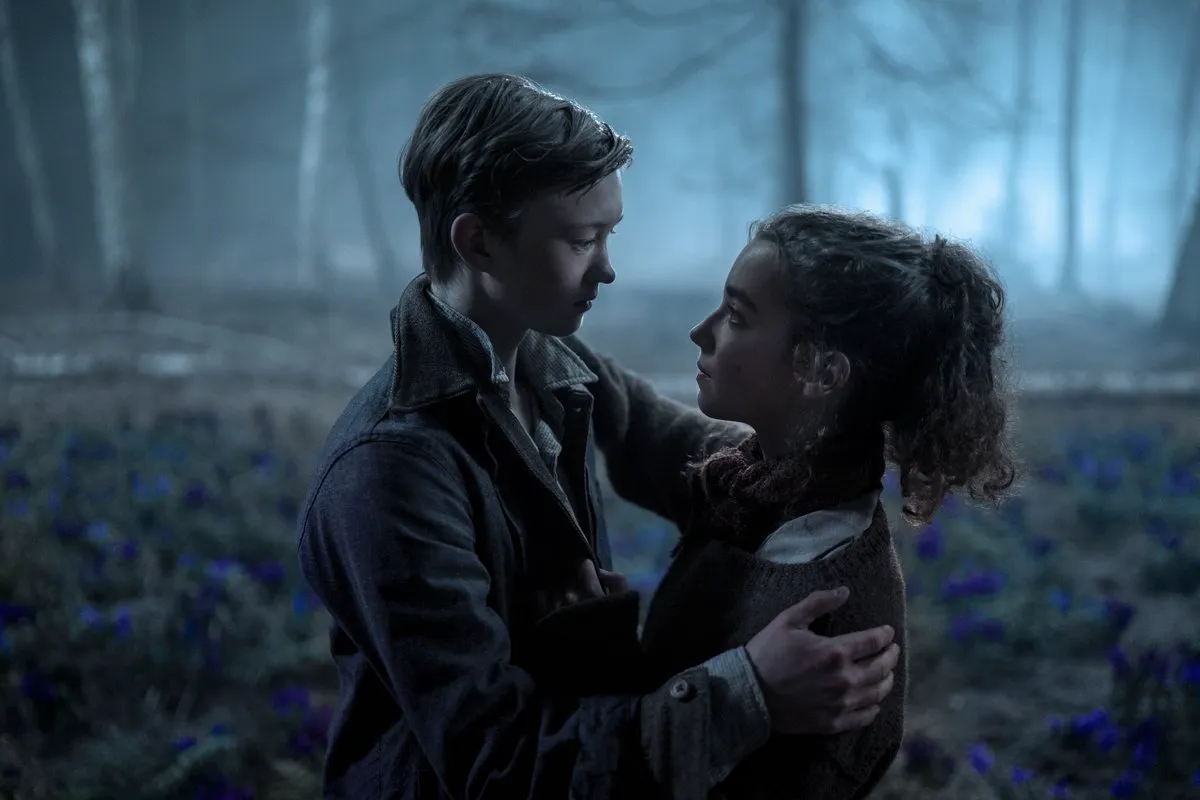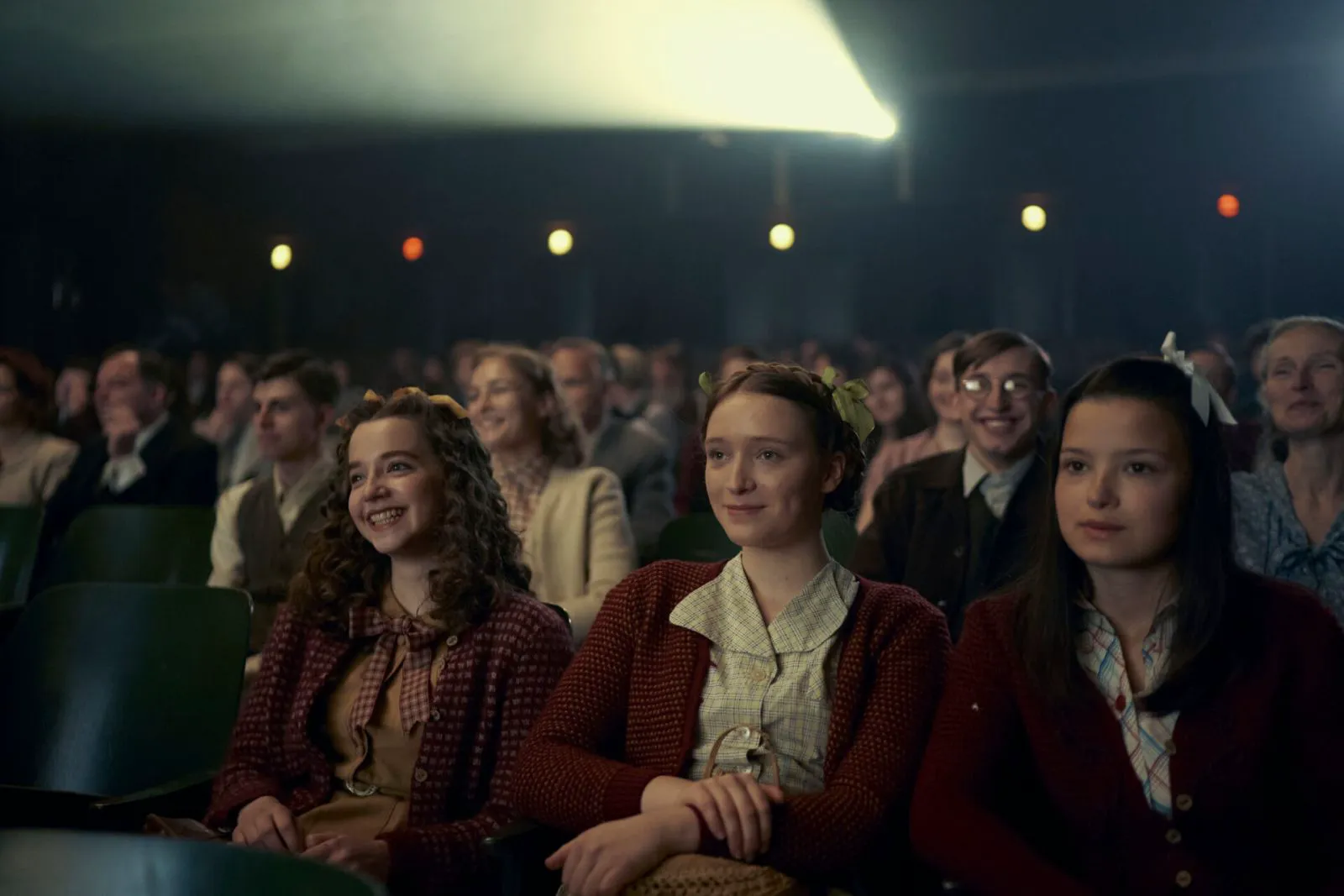White Bird: A Wonder Story - A Tale of Hope and Imagination
Julian Albans (Bryce Gheisar) finds himself at a crossroads in life. It is at this pivotal moment that his beloved grandmother (Helen Mirren) arrives from France. To guide her grandson through his struggles, she shares a poignant story from her own youth, set against the backdrop of the French occupation during World War II. Grand-mère recounts her separation from her parents, her life in a barn that became her sanctuary, and the young boy, ridiculed by classmates, who saved her life and helped her discover light both within and without.

Helen Mirren as Grand-mère in “White Bird: A Wonder Story”
“White Bird” is an adaptation of the graphic novel of the same name by R.J. Palacio. Julian Albans is the bully of Auggie, the protagonist of the acclaimed 2017 film “Wonder,” also based on a novel by Palacio. While labeled a “sequel,” “White Bird” could also be considered a prequel (though technically, it’s more of a spin-off). The grandmother tells her story after Julian is expelled from school for mistreating a classmate, transporting us to a harrowing past that one would rather not revisit.
Both films radiate a sense of hope, a sentiment frequently echoed by the characters in “White Bird” throughout its duration. Against the tragic backdrop of the occupation, “White Bird” unfolds almost like a fairy tale, where evil takes on a human form, and good doesn’t manifest as fairies or other magical beings. The characters in these memories are ordinary people thrust into the horrific circumstances of the early 1940s, and despite their losses, they repeatedly find support, often in the most unexpected places.

Gillian Anderson as Vivienne in “White Bird: A Wonder Story”
Echoes of the Past, A New Perspective
One might think this is a familiar story, one we’ve seen countless times. Hiding Jews was a theme in “The Book Thief” and “Jojo Rabbit.” The Holocaust has been explored in “Schindler’s List,” “The Pianist,” “The Boy in the Striped Pajamas,” and numerous other works, both in print and on screen. The list is endless. However, the presentation and quality always vary, situations change, and the interest remains. No matter how many books are read or how many treatises on the psychology of evil are studied, it’s impossible not to be moved by the question posed by young Sarah, a Jewish girl: “Why doesn’t everyone love us?”
Her father wisely, seriously, and justly corrects her: “Not everyone, remember, not everyone.” In occupied France, there are indeed kind people, and it is thanks to them that Sarah remembers her coming-of-age not only with fear, deprivation, and loss but also with selfless help from those who were also struggling. One can draw a subtle comparison between Mark Forster’s new film, a director committed to portraying goodness in cinema, and Roberto Benigni’s masterpiece, “Life is Beautiful.” Both works remind us of the power of imagination and, unexpectedly, inspire us to live, even when the horrors seem endless and our eyes are dry from tears.

Ariella Glaser as Sarah in “White Bird: A Wonder Story”
A Story That Soars
As beautiful as “Wonder” was, “White Bird” surpasses its predecessor, directed by Stephen Chbosky, perhaps due to its historical setting, where mutual support instills a strong sense of hope. In contrast, in Auggie Pullman’s story, bitterness feels more like a fly in the ointment in the protagonist’s largely privileged world. Both films may seem overly sentimental and manipulative, but in this new iteration, the sentimentality feels more natural.
The promotional campaigns draw viewers with big names – Helen Mirren and Gillian Anderson are prominently featured on the posters. While Mirren primarily serves as the narrator, Anderson, playing the mother of a young Frenchman with a huge heart, has ample opportunity to shine. As usual, she delivers an excellent performance, but she respectfully remains in the background, allowing the young actors to take center stage.

Ariella Glaser as Sarah in “White Bird: A Wonder Story”
One hopes that the blue-eyed actor Orlando Schwerdt will have a bright future and break thousands, if not millions, of hearts. As his character develops, he increasingly captivates the audience. The actor is perfectly cast in every plot twist – inconspicuous at the beginning, vulnerable in the moment, and radiant at the story’s climax. Ariella Glaser, who plays Sarah, is somewhat overshadowed by him, but she is nonetheless noteworthy. These two young talents are the main discovery of the creator of “Finding Neverland’s” latest work.
“White Bird: A Wonder Story” is a powerful drama that transforms the viewer’s inner world into a phoenix: burning it to the ground, washing away the ashes with tears, and then bestowing a light that reveals hope and fully reminds us of Albus Dumbledore’s wisdom. After the final credits roll, one wants to live, breathe, create, and remember that imagination, unlike reality, knows no bounds.